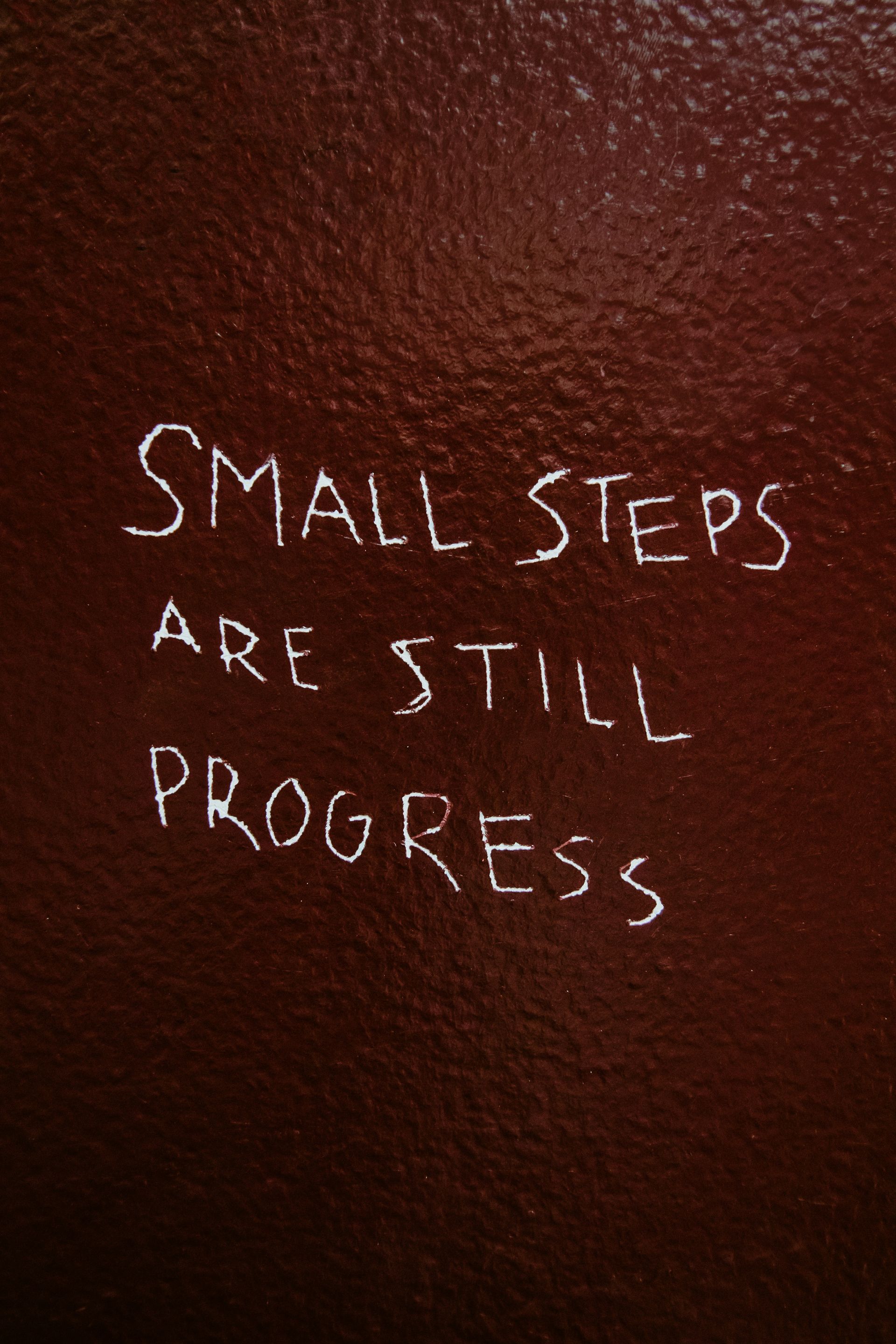
What is Self-Doubt?
Self-doubt is a lack of confidence in our abilities or decisions.
It’s uncertainty and insecurity about who we are and what we can achieve. While occasional doubt can motivate us,
chronic self-doubt prevents us from taking action, reaching our potential, and having good self-esteem,
which is my goal for you.
Causes of Self-Doubt
Self-doubt doesn’t develop in a vacuum. External experiences, personal fears, or internal beliefs often trigger it. Here are some common causes:
- Past Experiences of Failure: If we’ve faced setbacks, failures, or criticism, it can be easy to start doubting our abilities. Negative experiences leave lasting impressions that can create a cycle of doubt.
- Comparison to Others: With social media and the constant exposure to other people’s lives, it’s easy to compare ourselves to those around us. When we feel we don’t measure up, self-doubt creeps in.
- Perfectionism: The desire to be perfect can often lead to self-doubt. If we set unrealistic standards for ourselves, any perceived shortcomings can lead us to question our worth or abilities.
- Fear of Judgment: Worrying about what others think can make it difficult to take risks or step out of our comfort zone. Fear of judgment can fuel self-doubt.

Causes of Self-Doubt From The Impact of Emotionally Abusive Relationships
Past Experiences of Failure, Criticism, or Emotional Abuse
When parents or significant figures belittle us, invalidate our feelings, or constantly criticize us, it can severely damage our self-worth. Emotionally abusive parents make us feel as though nothing we do is ever good enough, leading to a pattern of self-doubt. Unlike constructive criticism, emotionally abusive behaviour often focuses on who we are rather than what we did. For instance, phrases like, "You’ll never amount to anything" or "Why can’t you just be normal?" can be devastating. These types of statements create a story about ourselves that we’re incapable of succeeding, even before we try.
These messages linger in the back of our minds, resurfacing when we encounter challenges. Instead of trusting our abilities,
we second-guess ourselves, unsure whether we are capable or setting ourselves up for failure.
Over time, this constant self-criticism spirals into deep self-doubt as
our inner voice becomes louder and more persistent, mimicking the toxic messages we received growing up.
Comparison to Others, Fuelled by Narcissistic Tendencies
Individuals with narcissistic tendencies, especially those close to us, often create a competitive, comparison-driven environment. When someone constantly demands the spotlight, they may
dismiss or downplay our accomplishments, leaving us feeling insignificant or invisible—even when our successes are remarkable. An example from my life is that I was never congratulated if I got 99% on a math test; it was always the one I got wrong. If it were a one-time comment, I would have taken it as a joke, but it happened too many times to be a joke.
Perfectionism as a Result of Emotional Manipulation
Emotionally abusive parents often set unrealistic standards to control or manipulate those around them. These unrealistic standards can breed perfectionism in someone trying to gain approval. The pressure to meet these impossible standards creates deep self-doubt. To earn validation, we push ourselves to extremes, fearing that any failure will result in harsh criticism or abandonment.
Over time, the desire to be perfect becomes overwhelming.
The anxiety of avoiding mistakes or disappointments leads to chronic self-doubt. Then,
we begin to feel as though we're never enough,
even when we succeed, because it’s often met with indifference or further criticism. This creates an ongoing struggle where we question our every move and wonder if we’re worthy of love or acceptance.
Fear of Judgment and Gaslighting in Narcissistic Relationships
In emotionally abusive relationships, gaslighting is a common tactic.
Gaslighting is when someone manipulates you into questioning your reality or perception of events. When an emotionally abusive person tells you that you're overreacting, imagining things, or being too sensitive, they make you doubt your feelings and instincts. This manipulation makes you second-guess everything you do and feel, eroding self-confidence and feeding self-doubt.

9 Effective Ways to Overcome Self-doubt and Heal
1. Recognizing the Root Cause of Self-Doubt: I acknowledge where my self-doubt originated. It’s essential I recognize that the self-doubt I feel isn’t a reflection of my abilities but rather a result of the toxic environment I grew up in.
2. Focus on Progress, Not Perfection: I embrace the idea that growth comes from my trying and learning, not from being perfect. I celebrate the small wins, and I am learning that mistakes are part of the process.
3. Surround Myself with Supportive People: Positive and supportive friends, family, or mentors help remind me of my strengths. Hearing a kind word from them or that they are proud of me helps make all the difference.
4. Set Realistic Goals: I break down big tasks into smaller, achievable steps. Smaller tasks reduce the overwhelming feeling of self-doubt and give me a sense of accomplishment as I check things off my list.
5. Practice Self-Compassion: I am much kinder to myself. Instead of beating myself up over what could happen, I talk to myself with the same compassion I’d give to a friend in a similar situation.
6. Challenging Negative Beliefs and thoughts: “I’m not worthy” or “I’ll never be good enough.” are beliefs that are deeply ingrained in me, and challenging them feels overwhelming. However, I am rewriting my story by challenging these negative thoughts.
When a negative belief arises, I pause and ask myself, “Is this thought based on fact, or is it the result of past criticism?” I realize that the abusive words of the past do not define my current self-worth. I replace self-critical thoughts with affirmations like “I am worthy of love and respect” or “I have the strength to handle challenges.” This practice is helping me retrain my brain to focus on my strengths, not my flaws.
7. Setting Boundaries with Toxic Relationships: Another critical step in healing from self-doubt is learning to set healthy boundaries. Setting boundaries means distancing myself from people who continue to undermine my confidence.
8. Seeking Professional Help and Support: Therapy is providing the tools and strategies I need to address the deep-seated emotional wounds by helping me reframe my negative beliefs, build my self-esteem, and process past trauma in a safe and structured way.
Additionally, I talk regularly with other individuals with similar experiences. Connecting with them helps me realize I am not alone.
9. Embracing a Growth Mindset:
A growth mindset means believing I can improve my skills, knowledge, and talents by working hard and keeping trying. It helps me understand that doubt is not a permanent state.

How to Help Your Kids Overcome Self-Doubt
As parents, we play a pivotal role in how our children navigate self-doubt. Here’s how we can help them overcome it:
- Model Confidence: Children model our behaviours and attitudes. By demonstrating confidence in ourselves, even when we feel uncertain, we teach them that it’s okay to try, fail, and try again.
- Encourage a Growth Mindset: We need to teach our kids that their abilities develop with effort. Instead of focusing on “you’re smart” or “you’re talented,” praise them for their hard work and perseverance.
- Create a Safe Space for Failure: Let your children know mistakes are typical and part of learning. Instead of reacting with disappointment, help them problem-solve and move forward. A safe space to make mistakes reduces the fear of failure and helps them see it as an opportunity for growth. As Lily says in my children's Finding Lily’s Inner Magic, “Mistakes help me learn and grow.”
- Avoid Negative Comparisons: Reassure your kids that everyone has unique strengths. Help them understand that comparing themselves to others leads to unnecessary self-doubt. Instead, encourage them to focus on their personal growth.
- Foster Independence: Give your children opportunities to make decisions, solve problems, and take on responsibilities. The more they succeed independently, the more they believe in their capabilities.

Conclusion
Overcoming self-doubt is a journey of recognizing our worth, challenging old beliefs, and embracing new, empowering mindsets. By working on our confidence, we also set a positive example for our children, teaching them to believe in themselves and their unique strengths. Let’s break the cycle of self-doubt together, building a foundation of self-love and resilience for ourselves and our kids.
"Remember, change begins with ourselves.
Put your knowledge into action and reach your full potential ."
Wishing you heartfelt warmth
and support on your parenting journey!
Cathy
Wish Setting Boundaries Was Easier?
Grab your FREE 7-day guide and create boundaries that bring you peace and balance!
All Rights Reserved | Cathy Barker
Site Designed and Developed by Client First Web Design & Graphics
